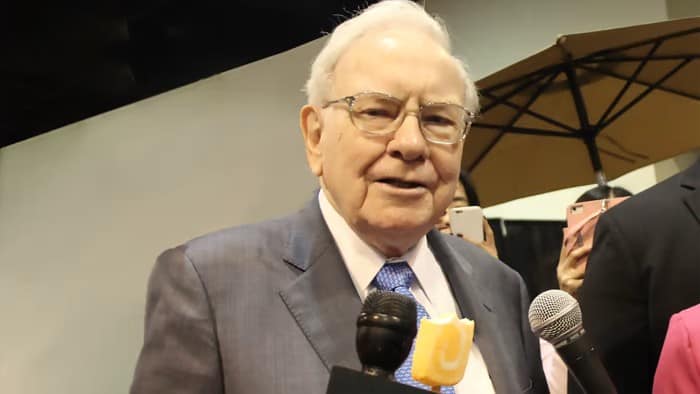Warren Buffett is universally regarded as one of the best investors of all time, if not the best. So it makes sense that investors rake over Buffett's moves — or more accurately, the moves of his company Berkshire Hathaway Inc (NYSE: BRK.A)(NYSE: BRK.B) — with a fine-toothed comb whenever they become public knowledge.
Berkshire's latest 13F filing, which shows the quarterly investment activity of the fund, is well worth a read.
The filing was publically released this month on 15 May. It revealed that Berkshire sold a whopping US$13.3 billion ($20.42 billion) worth of US shares over the three months to 31 March 2023. Buffett also spent US$2.9 billion buying stocks, so it was a net sale of US$10.4 billion in stocks over the quarter.
$20 billion worth of stocks leave Berkshire's books
The largest sales in Berkshire's portfolio included Bank of New York Mellon, Taiwan Semiconductor Manufacturing Company, US Bancorp and RH. Other sales included Activision Blizzard, General Motors, Amazon and Chevron.
It's hard not to interpret these sales as a collective warning for all investors. After all, Buffett usually likes to be a net buyer of stocks. To see him converting stocks to cash is certainly a red light.
Earlier this month, we looked at the geopolitical reasons why Buffett offloaded the stake in Taiwan Semiconductor. But it's the bank sales that might just be the most illuminating here.
Bank shares are typically highly cyclical, with their fortunes closely tied to that of the overall economy. The fact that Buffett is washing his hands of both Bank of New York Mellon and US Bancorp says something.
Why is Warren Buffett selling his bank stocks?
In Berkshire's 2023 annual shareholders meeting, Buffett said in terms of owning banks, "events will determine their future". Here's more of what he told shareholders about bank shares:
… you've got politicians involved. You've got a whole lot of people who don't really understand how the system works. And I would say you've had something less than a perfect communication between various people and the American public.
So, the American public is probably as confused about banking as ever… And that has consequences. And nobody knows what the consequences are because every event starts recreating a different dynamic…
But you don't know what has happened to the stickiness of deposits at all. It got changed by 2008. It's gotten changed by this [the collapse of Silicon Valley Bank]. And that changes everything. And so, we're very cautious in a situation like that about ownership of banks…
But do I know how to project out what's going to happen from here? The answer is I don't, because I've seen so many things in the last few months which really weren't that unexpected to me to see.
These comments appear to be directed at the US banking sector. But they don't exactly leave investors with a warm and fuzzy feeling about the immediate future of the stock market.
Foolish takeaway
Whenever Buffett sells more stocks than he buys at Berkshire, it indicates that he either can't find lucrative investments right now or else he is anticipating being able to buy lots of lucrative investments very soon. Time will tell which is the case.









